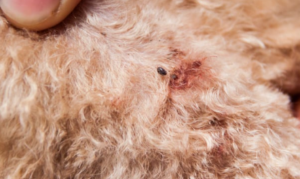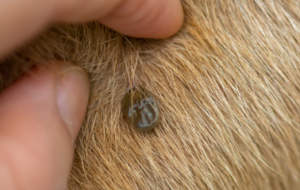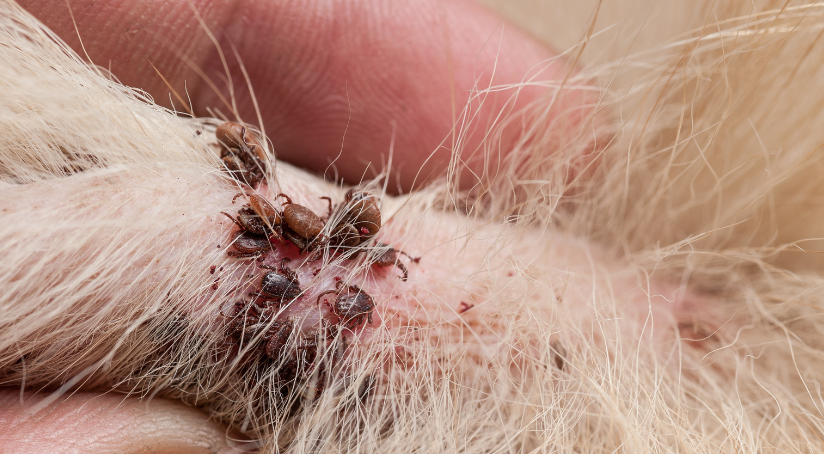Seasonal flea and tick problems can make many pet owners feel anxious and dreadful. However, fleas and ticks are dangerous to all mammals, including humans. Many pet owners will search, “When is flea and tick season?” as the weather warms up. Here, we will discuss what you should know about flea and tick season and the dangers associated with them.
Behaviour

Both fleas and ticks are parasites that feed on living things and inhabit wooded areas and long, thick grass outdoors. Both bugs are notorious for causing havoc as well as having irritating bites.
Fleas frequently stick to dogs and will travel anywhere, even your home. The adults will lay eggs on their hosts and hatch quickly into larvae. Flea eggs can hatch in two weeks, and the pest infestation and infection can spread rapidly. Despite the rarity of indoor tick infestations, they can occur if you bring them inside on your clothing or if your cat or dog transports them.
Dangers Caused by Fleas and Ticks

Although fleas and ticks do not prefer to feed on humans, they can cause serious health issues if they attach to a host. Numerous illnesses, such as Lyme disease, Rocky Mountain spotted fever and alpha-gal syndrome, can be transmitted to humans by ticks. Although fleas aren’t recognized as disease carriers, they can act as parasite carriers and disease vectors.
They also have a nasty habit of biting, which may be annoying and uncomfortable. Tick and flea bites can cause various skin issues if they are not properly treated. Contact a doctor if you believe a flea or tick has bitten you and you are concerned about any swelling, redness, itching, or other symptoms.
When Is Flea and Tick Season?
Fleas and ticks go into diapause during the winter months, which is similar to hibernation. These insects may be present year-round in many areas that are inconsistent with climate change.
Most of the time, weather conditions predict when fleas and ticks are most active. Numerous factors can affect flea and tick populations, but they are most active in warm, humid weather. Typically, the flea and tick season lasts during March and December.
Flea and Tick Prevention Tips for Pets

Cats and dogs can readily introduce harmful pests into your house without preventative measures. Additionally, they are more likely to experience anemia, hair loss, and other chronic flea bite symptoms. Fortunately, there are numerous different drugs that you can buy from your veterinarian or over the counter to stop fleas and ticks from biting your furry pals, including topical formulations and ingestible choices.
If you’re unsure about which choice is best for your pets or would need more details on how fleas and ticks can affect your pet’s health, speak with an expert in animal care.
Conclusion
I hope the article will be helpful in finding everything you need to know about flea and tick season. Removing them from your pet’s skin is not easy; it should be done properly. If you cannot handle the infestation or are unaware of the pest removal methods, hire a professional pest control service.





